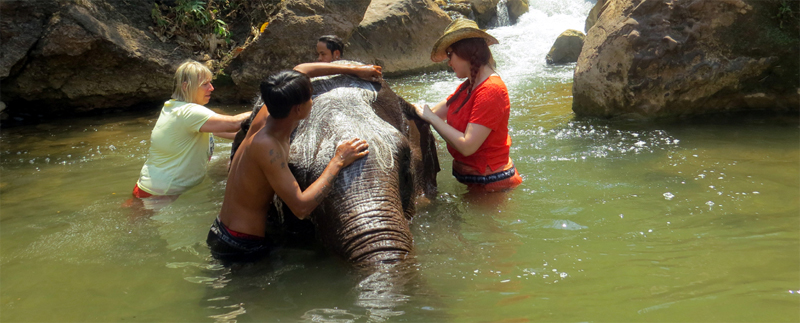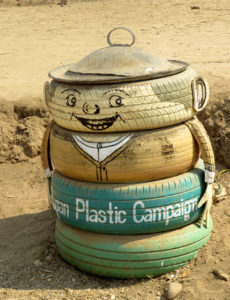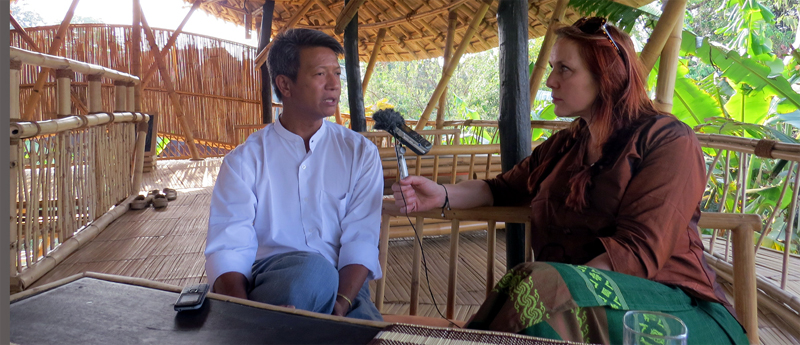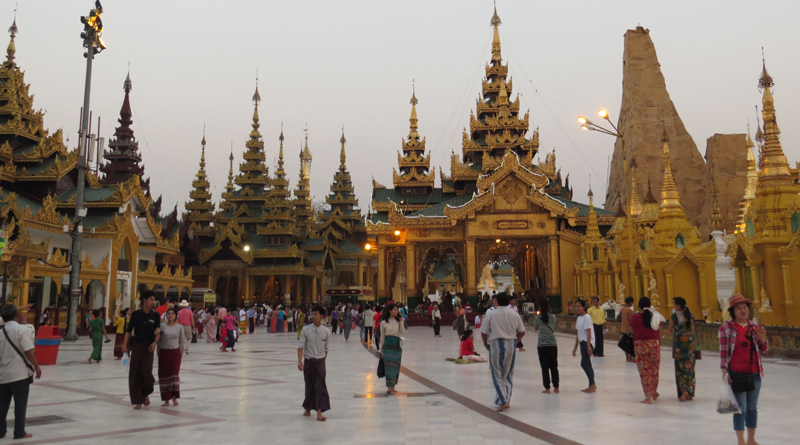MYANMAR: TOURISM & ETHICS
Is it ethical to visit Myanmar? This was a question I was asked a number of times as I prepared to set-off for two weeks in this much misunderstood country.
With the plight of the Rohingas filling news screens daily, and Angelina Jolie adding her voice to the outcry – Myanmar was considered a place to avoid, not one to travel to.
But is it right, or even useful, to boycott an entire country’s tourism industry because we do not agree with the government’s actions?
If so then I don’t think there’d be many countries left to visit; we’d boycott the USA due to Trump’s (too many to list) actions, Japan due to the annual Tiaji Dolphin Hunt , Canada for clubbing seals , Thailand and Sri Lanka for their persecution of Muslims, Iceland for its whaling, India for its honour killings and treatment of widows, Saudi Arabia for its treatment of women , the UK for selling arms to the Saudis for use in the Yemen.
Yes, sorry – even a staycation would be out of the question.
That’s not say we should in any way condone these activities, or that we shouldn’t campaign against them. But by choosing to boycott the tourism industry of a country we are hurting the ordinary person much more than the government of the country.
When Myanmar opened its doors to tourists in 2012, many ordinary families pooled their resources and invested their money in creating tourism offerings: villagers in Pattu Bauk adapted their homes and built screens for their showers in order to accommodate western tourists; Kyaw Swar and his family built a beautiful Eco Lodge near Inle Lake; Zarni and Yelen are among many who have learned English and trained to be guides; in Bagan, families invested their money opening e-bike rental shops; others trained as chefs to accompany those trekking from Kalaw to Inle Lake; and in Mandalay, boat owners adapted their vessels to accommodate tourists for day cruises along the river. The list goes on.
And then there are the big hotel chains; for example, the Novotel in Yangon and the Sofitel at Inle Lake invested money and created jobs that local people depend upon.

 Plus, initiatives like the Bagan Plastics Campaign, the Greenhill Valley Home for Retired Timber Elephants, and The Minzongtaung Wildlife Sanctuary, which is working to save the star tortoise, would all struggle to exist without the support of tour companies like Khiri, the presence of which only continues if people are visiting Myanmar.
Plus, initiatives like the Bagan Plastics Campaign, the Greenhill Valley Home for Retired Timber Elephants, and The Minzongtaung Wildlife Sanctuary, which is working to save the star tortoise, would all struggle to exist without the support of tour companies like Khiri, the presence of which only continues if people are visiting Myanmar.
Tourists are at the heart of all of this: as visitor numbers increased, Myanmar’s economy received a boost, and the lives of local people began to improve.
But then the military’s killing of Rohingas hit the headlines. Tourist numbers plummeted: in 2017, down around 40%; expected to fall to 60% for the 2018 season. People whose livelihoods depended on the short tourist season began to suffer.
Did that change the behaviour of the military? No. If anything it plays into their hands. While the population is poor, uneducated and struggling to survive, democracy and the plight of a small ethnic group far away in northern Rakhine State is not going to be a priority concern for most Burmese.
The argument that avoiding visiting Myanmar does more harm than good is a legitimate one. By spending our money with local people – supporting local businesses and initiatives, learning more about the people and their culture, and sharing our experiences with our friends – we can help the Myanmar people regain their strength to stand up and fight for fairer elections, and a new, more compassionate way forward with their Muslim minority.
FACT BOX
Myanmar Tourism
Khiri Travel
Novotel Yangon Max
Novotel Inle Lake
Sofitel Inle Lake
A Little Eco Lodge/
Bagan Plastics Campaign
Greenhill Valley Home for Retired Elephants
The Minzongtaung Wildlife Sanctuary
Featured image : Shwedagon Pagoda

ABOUT THE AUTHOR
Chantal Cooke is an award-winning journalist and broadcaster and co-founder of PASSION for the PLANET. Chantal is passionate about tourism being used as a force for good. You can follow her adventures on Facebook and Twitter @chantalcooke and on Instagram @Chantaldcooke

